For information on the film and the filmmakers, please download the press brochure.
STILLS
"Liza ruft!" is a moving and thought-provoking documentary film about the Holocaust, Jewish resistance and commemoration politics in Lithuania, and the first ever portrait of a Jewish woman partisan. Through interviews with Fania Brantsovskaya, her loved ones, and former fellow partisans, "Liza ruft!" creates an intimate and vivid picture of an outstanding woman who continues to be both a victim of persecution as well as an agent of history with a mind of her own.
Fania Yocheles-Brantsovskaya was about to begin her studies, when on June 22, 1941, the Germans invaded her hometown of Vilnius—known at that time as "Jerusalem of the North."
Fania and her family were forced into the overcrowded ghetto, suffered slave labor and survived the "Aktionen" in which the Germans and their Lithuanian collaborators murdered a total of 70,000 Jews in nearby Ponary. Aware of the annihilation plans, Fania joined the Jewish resistance group Fareynikte Partizaner Organizatsye (FPO)—Yiddish for the United Partisan Organization. "Liza ruft!"— "Liza is calling!" — became the secret rallying cry of their struggle. One week before the Germans liquidated the ghetto, the FPO members escaped and joined the Soviet partisan movement in the nearby forest. Fania carried out sabotage missions and eventually participated in the Soviet's liberation of Vilnius.
Although the Germans and their local collaborators had murdered her entire family, Fania stayed in her native country and contributed to its reconstruction under Soviet rule. After her husband's death—she had fallen in love with Misha during the partisan
struggle—and the collapse of the Soviet Union, Fania began to devote her life to the commemoration of the Holocaust and of Jewish resistance. While this brought her recognition abroad, she became the target of revisionists and anti-Semites at home. A memoir written by Fania's friend Rachel Margolis was exploited by the Lithuanian right-wing media. The memoir mentions that Fania took part in the battle of Kaniukai, a village that opposed the anti-Nazi partisans; a battle in which 38 people were killed. A low point was reached in 2008, when the public prosecutor interrogated the then 86-year-old Fania as part of a war crimes investigation. Only after an international outcry were the investigations suspended. Soon after, Lithuanian politicians discovered that they could use Fania for their own purposes.
Ever since, Fania's struggle for commemoration has turned into a complex balancing act. While her commitment to do memory work is threatened by depoliticization and alienation from her former fellow partisans, she remains in constant danger of renewed anti-Semitic attacks and a resumption of the legal proceedings.
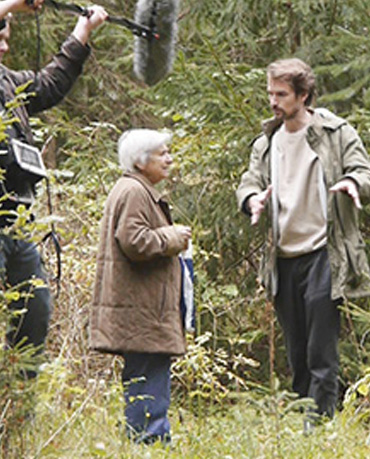
Christian Carlsen holds an M.A. in Historical Sciences and German studies. He works as a freelancing scholar and writer. In a cooperation with Gideon Greif (Israel), he explores the reality and image of the Jewish “Sonderkommando” of the Auschwitz death camp. “Liza ruft!” is his first film.
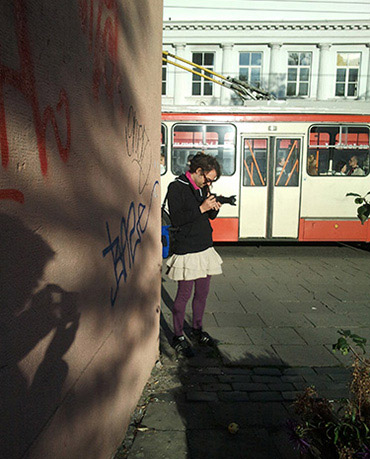
Philipp Jansen took classes in philosophy, politics, and filmmaking. Her early works include the award-winning short film “Survive Berlin” (2005). Since 2008, she works as freelance editor. Most recently, she edited a portrait of the Holocaust survivor Walter Spier.
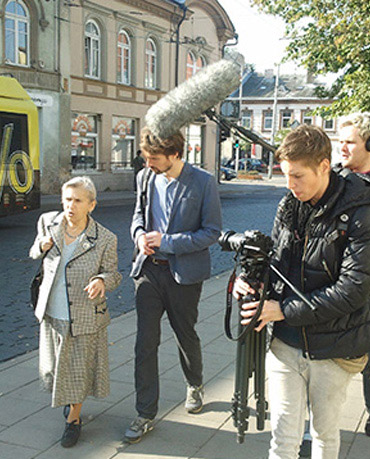
Nossa Schäfer graduated in Cultural and Gender Studies. In 2008, she began to study film directing at FilmArche, a self organized film school in Berlin. Her works include several short films.
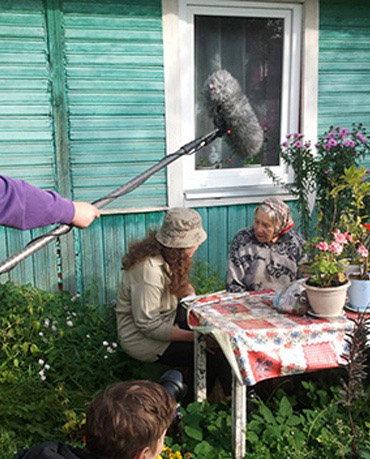
Susanne Dzeik works as an independent film maker and director of photography. Her work includes the prizewinning documentaries “Von Mauern und Favelas” (2005) and “Nach dem Brand” (2012).
For information on the film and the filmmakers, please download the press brochure.
Secondary and adult educators are welcome to order a copy of the film and the additional English-language teaching brochure "Holocaust, Jewish resistance and commemoration politics in Lithuania" free of charge.
Politicians and educators often complain about an alleged disinterest in learning about the history of Nazi Germany and the Holocaust, especially among young people, but it is often a matter of methodology whether these issues generate interest or rejection. Movies have proven to be a compelling medium for Holocaust education. The feature length documentary film "Liza ruft!" offers numerous possibilities for curricular and extra-curricular education:
For successful educational use, films should be accompanied by additional information that can be moderated and discussed.
The teaching brochure edited by Christian Carlsen summarizes the historical background, introduces the protagonists, outlines the conflicts, provides primary sources, poses questions and suggests tasks.
For inquiries and orders, please email to education@lizaruft.com
The teaching brochure "Holocaust, Jewish resistance and commemoration politics in Lithuania" was made possible by a grant from the Dr. Nelly Hahne-Stiftung.
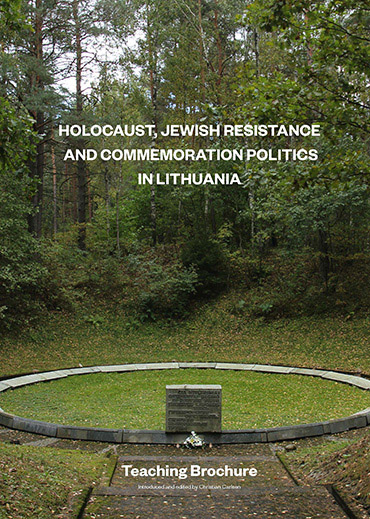
10999 Berlin, Germany
Coming soon !
"Liza ruft!" is an independent production. We are therefore very pleased about your bookings for screenings.
By request, also with the attendance of the filmmakers to discuss "Liza ruft!" with the audience.